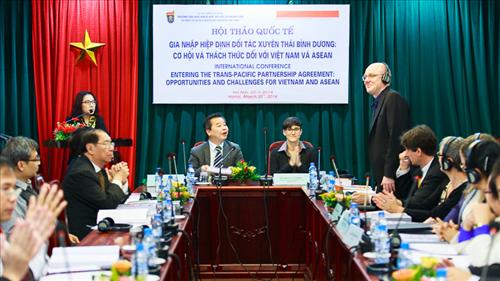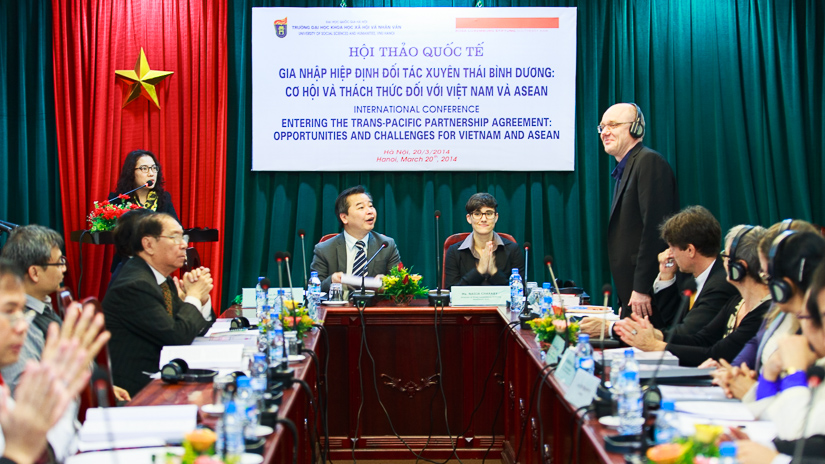

(Photo: Jackie Chan/USSH)
The TPP (Trans-Pacific Strategic Economic Partnership Agreement) has the full name of the Trans-Pacific Strategic Economic Partnership Agreement, initiated by the heads of three countries: Chile, New Zealand, and Singapore on the occasion of the APEC Summit held in Mexico in 2002. This is a multilateral free trade negotiation, with the goal of establishing a common free trade area for member countries in the Asia-Pacific region. Negotiations began in late 2009 with 5 member countries, and by 2013 there were 12 member countries participating, including Vietnam. With 12 current members, if signed, the TPP will create a large free trade area with 800 million people, accounting for over 1/3 of the world's import-export trade and nearly 40% of global GDP. TPP is expected to be a “high standard” agreement of the 21st century with a deep level of liberalization and high trade principles. For Vietnam, TPP negotiations are one of the most important trade negotiations alongside other current free trade negotiations such as: with the EU, Korea, EFTA, RCEP…
At the workshop, the presentations shared analyses of the great opportunities for Vietnam when participating in the TPP, which are: helping Vietnam balance trade relations with key market areas, avoiding dependence on a certain market area; contributing to the completion of the market economy institution, investment and business environment; promoting transparency of management mechanisms and policies, promoting economic development... Besides, the challenges that Vietnam needs to pay attention to are: fiercer competition both in breadth and depth in trade activities; the possibility of increasing uneven distribution of benefits between regions and industries; interdependence between Vietnam and TPP member countries; incompatibility between the legal system and Vietnamese labor force with TPP commitments...
Many other contents were also exploited and clarified at the workshop such as: TPP and challenges to ASEAN's central role in economic integration in the Asia-Pacific region; Vietnam's economic diplomacy strategy and the TPP Agreement; Vietnam - US relations towards the TPP Agreement; neutralizing intellectual property conflicts between TPP negotiating countries; between TPP and RCEP - opportunities and challenges for ASEAN...
Author:Thanh Ha
Newer news
Older news